-
ABOUT US
-
ACADEMICS
Curriculum Program
Departments
- English
- High School Chinese
- Primary and Junior School Chinese.
- High School Mathematics
- Middle School Mathematics
- Primary School Mathematics
- Music and Fine Arts
- Physical Education
- Physics
- Chemistry
- History and Geography
- Physical Science and Optional courses Department
- Middle School Biology
- High School Biology
- Social Sciences
- Computer Science
- Courses in Primary School
Achievements and Matriculations
College Counseling
Science & Technology Innovation Contest
-
ARTS
-
ATHLETICS
-
AT SHSID
SHSID ∣ TIMES
PTSA
Club Exhibition
- 龙吟社
- Live 2 Drama
- Choir
- Hip-pop Dance Club
- The Primary School Dance Troupe
- Symposiums Club
- Biology Workshop
- You Shan
- VEX Robotic
- Peking Opera Club
- Baseball Club
- Model United Nations
- The World Scholar’s Cup
- Future Problem Solving Club
- United States Academic Pentathlon
- OM Club
- AMC Club
- Music for Patients
- SHSID Gazette
- Smile Charity
- Cultural Moments
- SciAcademy
- Stem Doge Alliance
- Chinese Debate Club
- IAA
- Mock Trial Club
- Zhengming Club
- Art-to-zine
- Bananaheads
- Electronics
- Furry Friends
- GT-Racing
- MCG Philharmonics
- Village Radio
- IMMC Club
- Creative Design and Intelligent Fabrication
- Future City Research Project
- ECOCAP
- AdvocaSEA
- SPDC
- Medishine
- Floorball Club
- Animusic MTC
- Wings Up
Health and Wellness
Campus Safety
Cafeteria Service
-
ADMINISTRATION
-
ADMISSIONS
-
ALUMNI
Alumni Information
Honors Students
- Class of 2024
- Class of 2023
- Class of 2022
- Class of 2021
- Class of 2020
- Class of 2019
- Class of 2018
- Class of 2017
- Class of 2016
- Class of 2015
- Class of 2014
- Class of 2013
- Class of 2012
- Class of 2011
- Class of 2010
- Class of 2009
- Class of 2008
- Class of 2007
- Class of 2006
Who Studied at SHSID
SHS Foundation
-
DOCUMENTS
Hongkou Campus | Childlike Dialogue with a Master: Works by Hongkou Campus Students Shine at Huang Yongyu Art Exhibition
Cross-Generational Inheritance of Artistic Genes
As the morning light of late spring spilled over the glass dome of the World Expo Museum, the owls made by Mr. Huang Yongyu's brushstrokes quietly met the skateboarding mice painted by children in the exhibition hall. On April 15, more than 200 whimsical artworks by students from SHSID Hongkou Campus debuted at the opening ceremony of the Huang Yongyu New Works Exhibition, sharing space with original pieces by the master artist. Eight student representatives further enlivened the event by reciting Huang Yongyu’s[1] poetry in clear, youthful voices, allowing the rhythm of words and visual art to resonate throughout the hall. This exhibition not only vividly embodied Hongkou Campus’s educational philosophy of “educating through aesthetics,” but also forged a cross-generational, cross-temporal dialogue between young creators and the seasoned artist through the juxtaposition of innocent brushstrokes with weathered traces of ink.
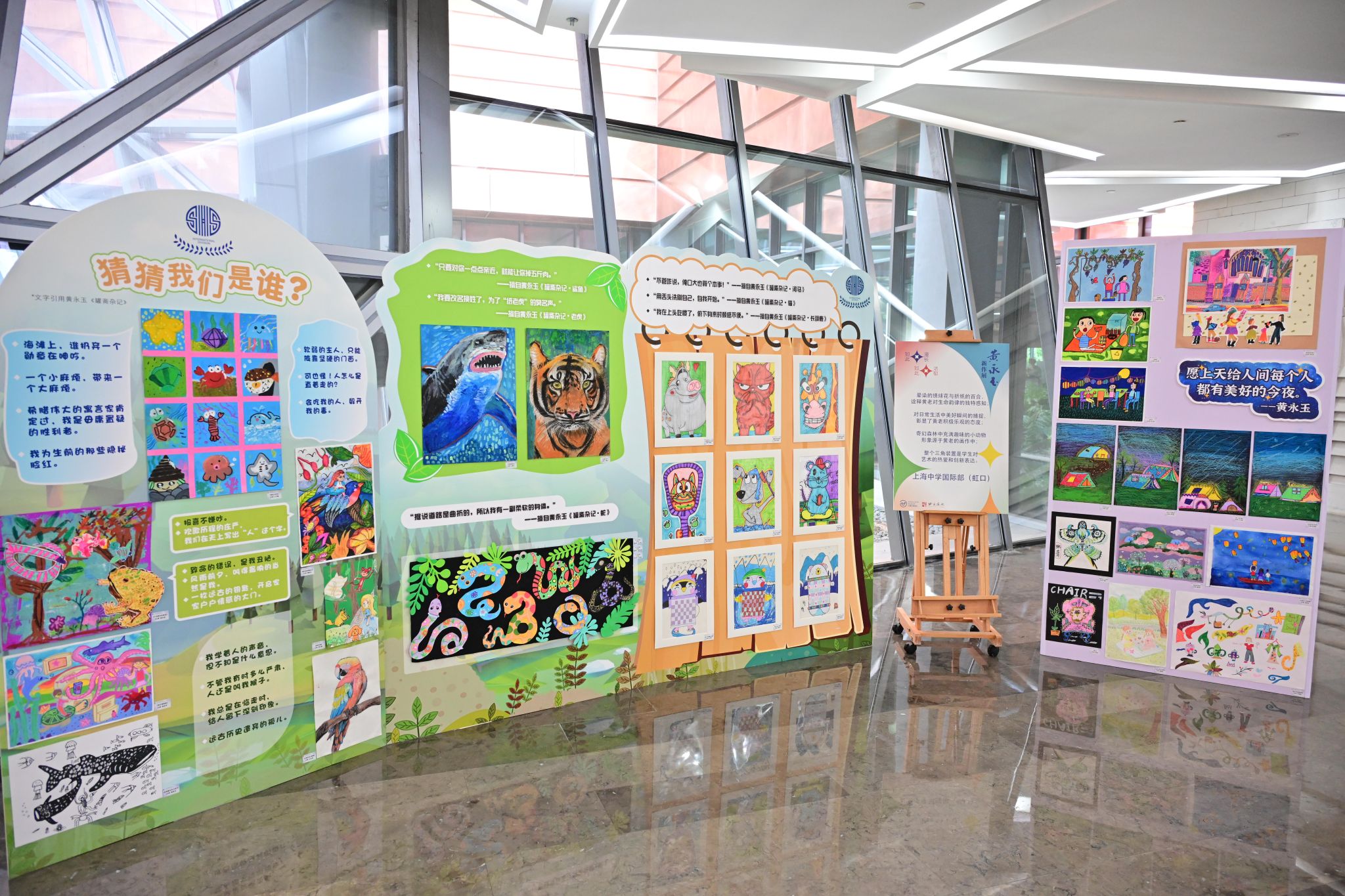
A Universe of Childlike Imagination Across Three Themes
Building on their study of Huang Yongyu’s classic motifs, students infused their works with observations of daily life and visions of the future. From the humorous animals of Guanzhai Zaji (Miscellaneous Notes from the Jar Studio) to the tranquil poetry of Tonight, children reimagined Huang’s artistic symbols through their ingenuous strokes, weaving a half-century-spanning artistic conversation through a lens of childlike wonder. Over 200 classroom creations were transformed into three themed zones at the World Expo Museum: “Animal Kingdom,”“Fantasy Adventure,” and “Beautiful Life,” constructing a cosmos of youthful creativity.[2]
The playful “animal aphorisms” from Guanzhai Zaji inspired the “Animal Kingdom” section. With innocence and imagination as their brushes, the children brought vivid, whimsical creatures to life on paper.
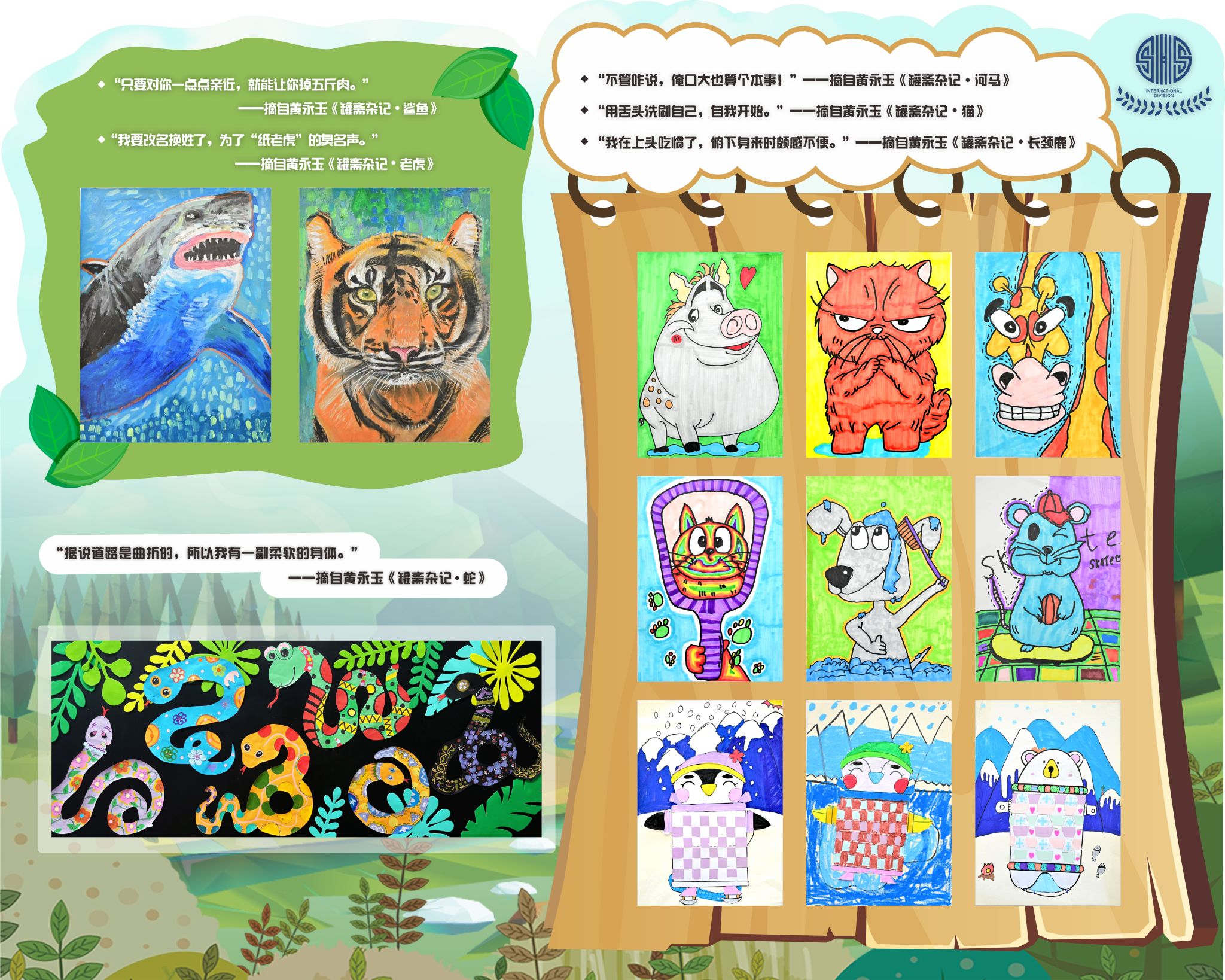
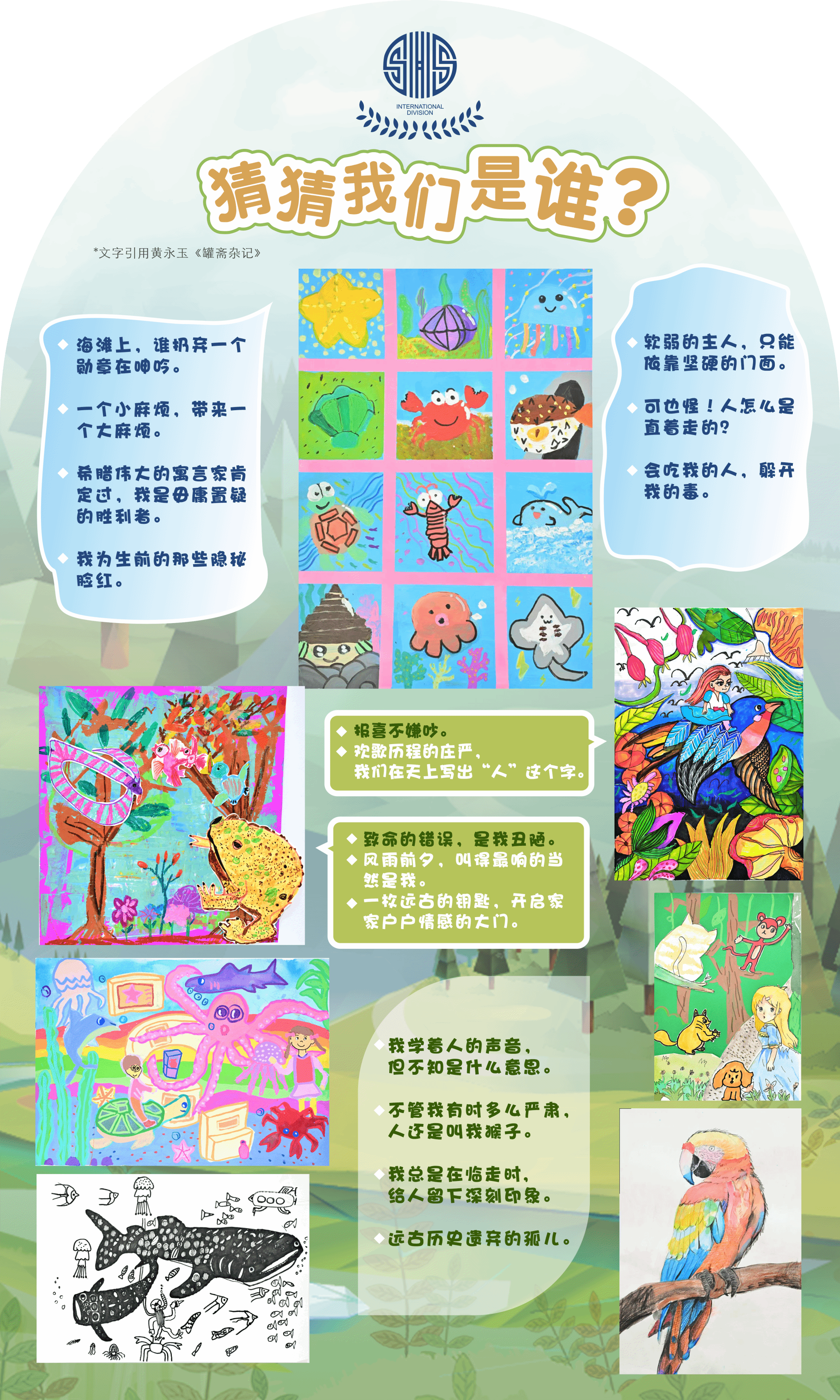
In the “Fantasy Adventure” zone, students meticulously cut out images of wild geese, owls, and other charming animals from Huang Yongyu’s works, integrating them into self-painted forests. Each collage became a unique microcosm, as if these creatures had journeyed from the artist’s world into theirs. The Fantasy Forest series, born from study and innovation, extended the allure of Huang’s animals into new creative contexts.
Huang Yongyu’s love for nature and his celebration of simple joys, or finding beauty in the ordinary, resonated in the “Beautiful Life” section. Students focused on everyday moments—time with family, picnics with friends—echoing the artist’s ethos. Huang’s serene Tonight found kinship in the students’ tranquil Camping series.
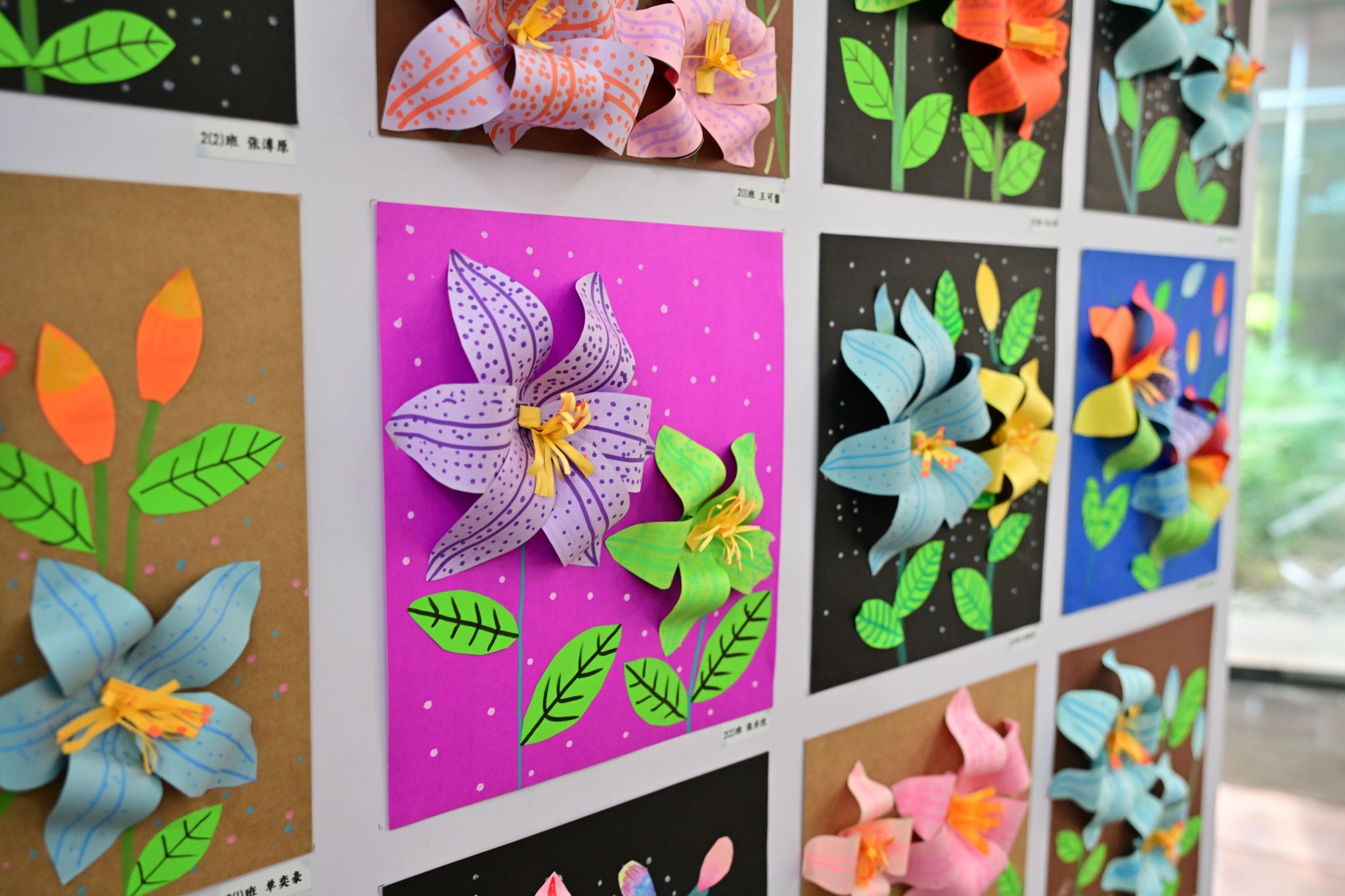
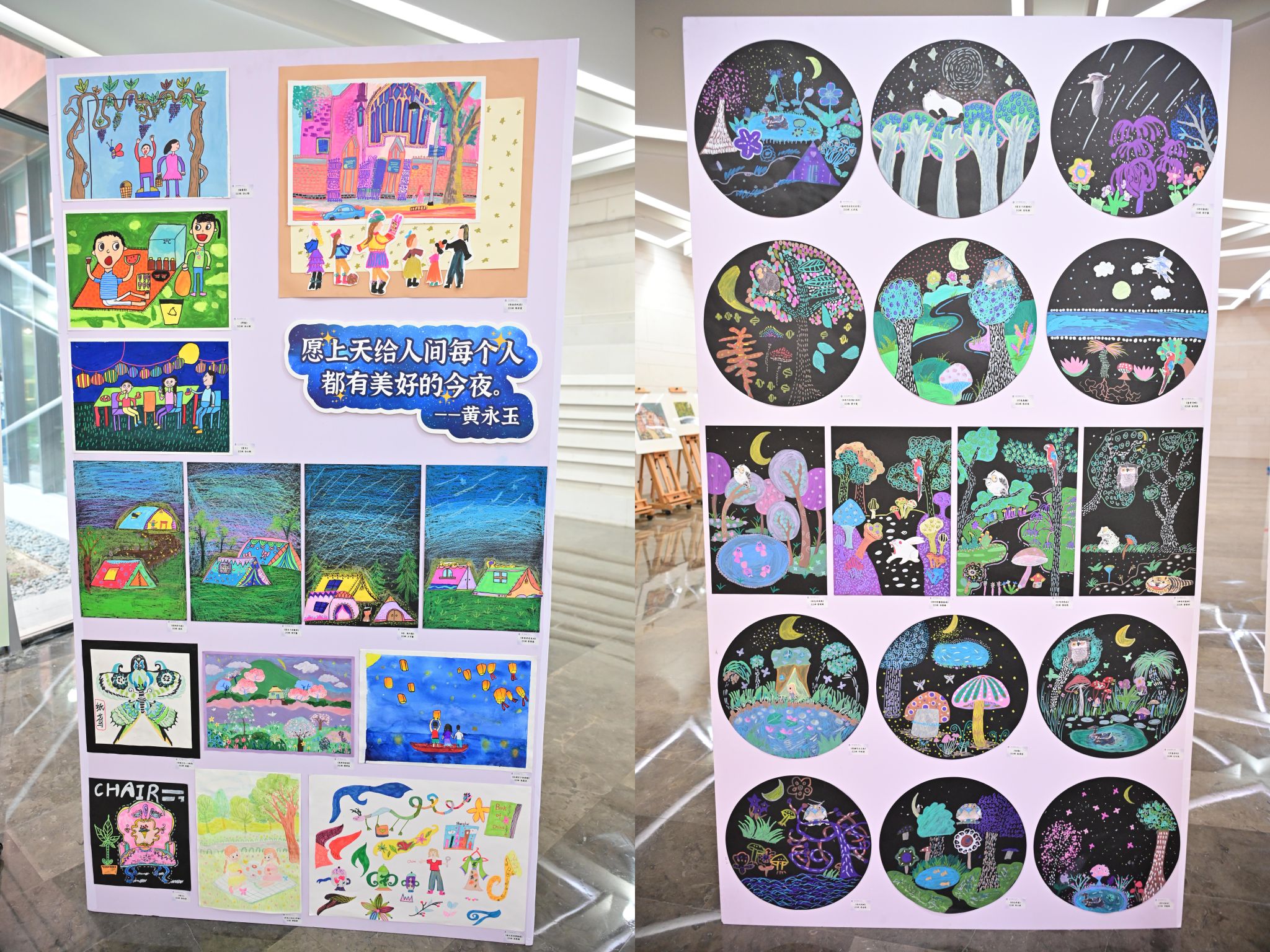
Moments of Artistic Awakening at the Opening Ceremony
“Spring has come, as big and small trees begin to sprout…” The crisp voices of eight Hongkou Campus students opened the Huang Yongyu exhibition. “On New Year’s Eve, the sky resembles a garden blooming with colorful, echoing flowers.” Their recitations of Spring and Fireworks infused Huang’s poetry with fresh vitality, bridging time through youthful interpretation.
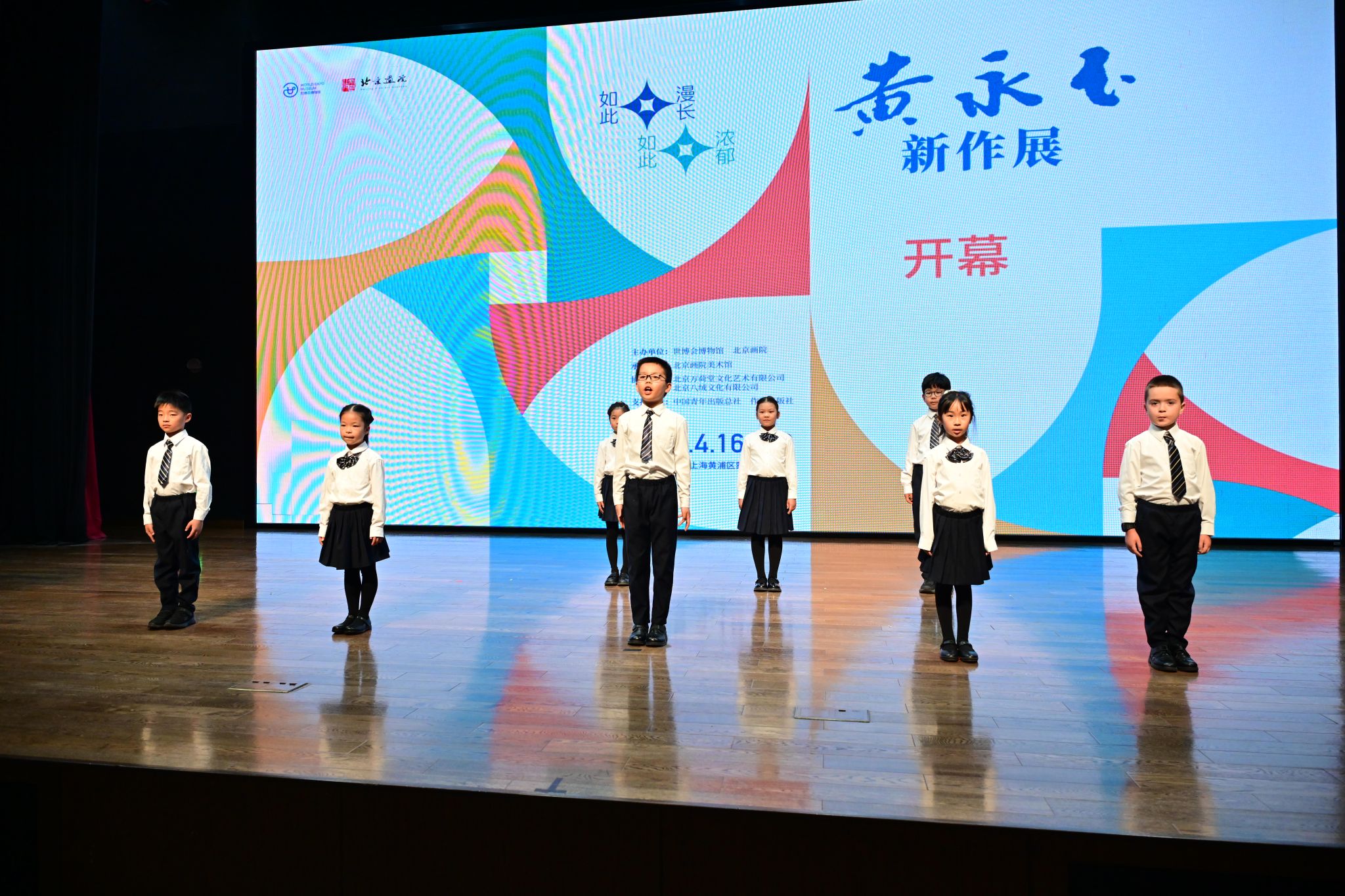
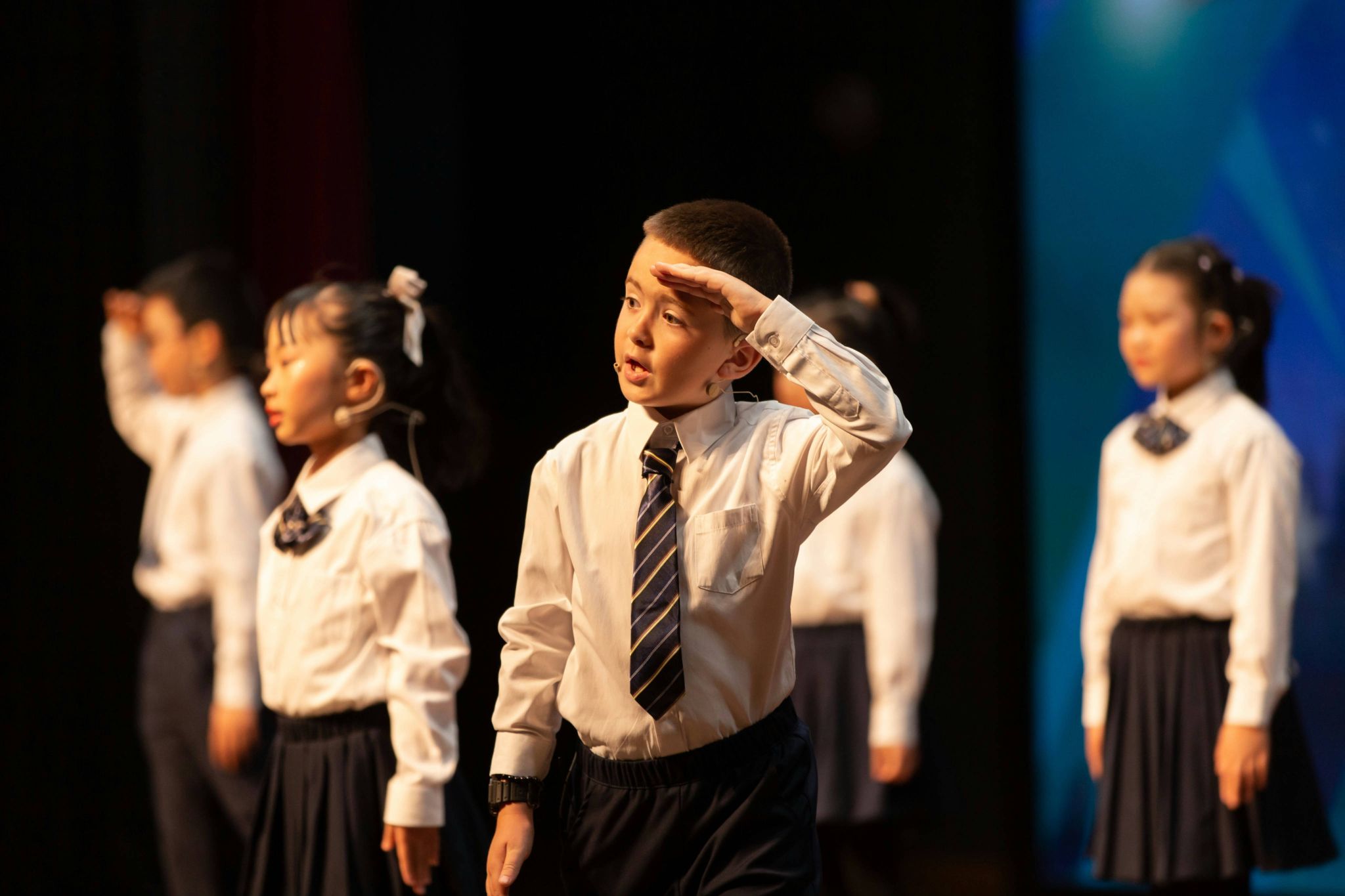
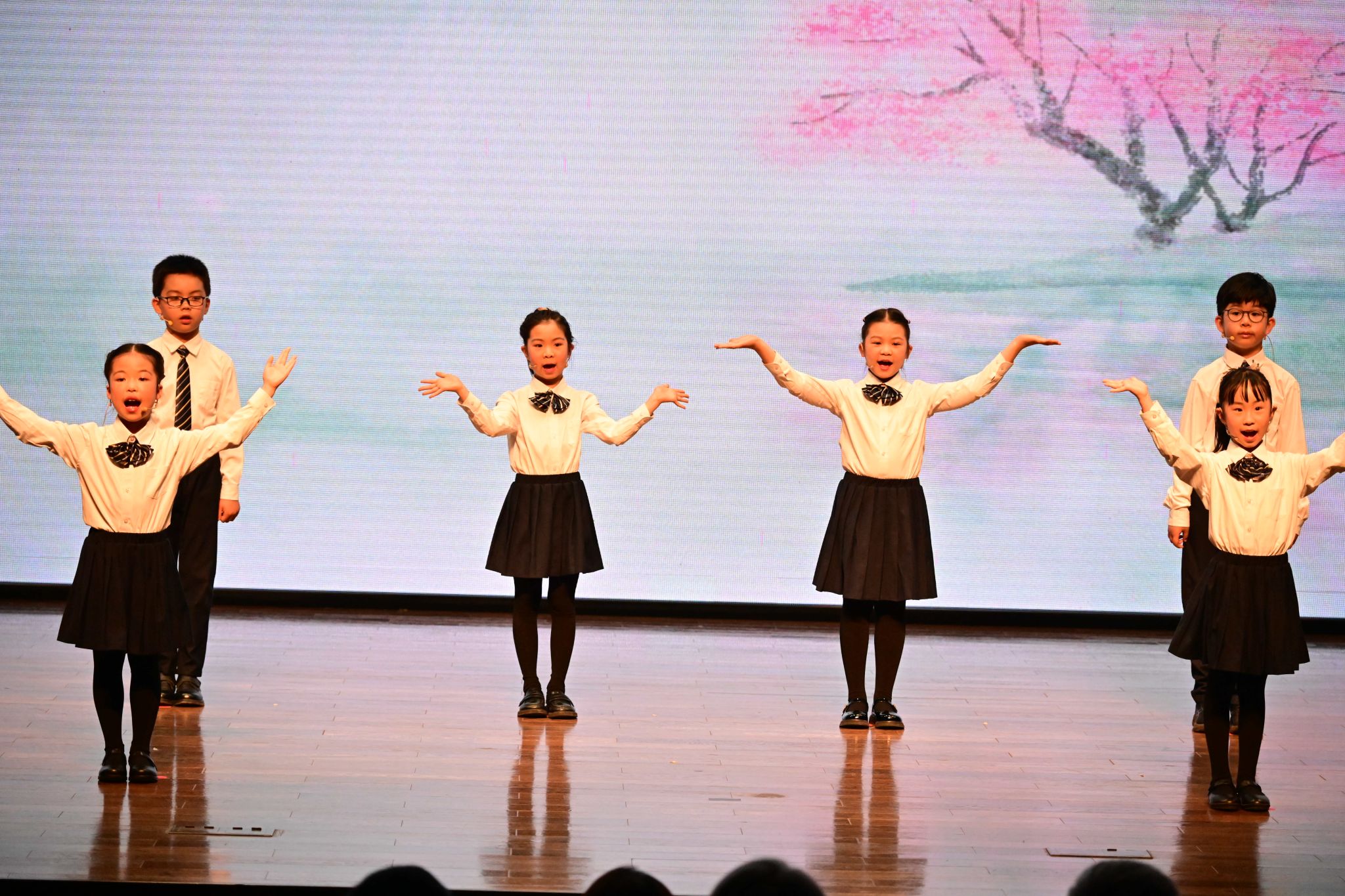
Nearby, dozens of student artworks whispered tales of inner worlds. Vibrant strokes depicted fantastical animal realms and warm snapshots of life, each piece a window into childhood dreams, drawing viewers into a pure artistic ambiance.

Two student representatives were interviewed by theYouth Daily’s junior reporters, sharing their awe at “dialoguing” with a master, their words brimming with artistic passion.
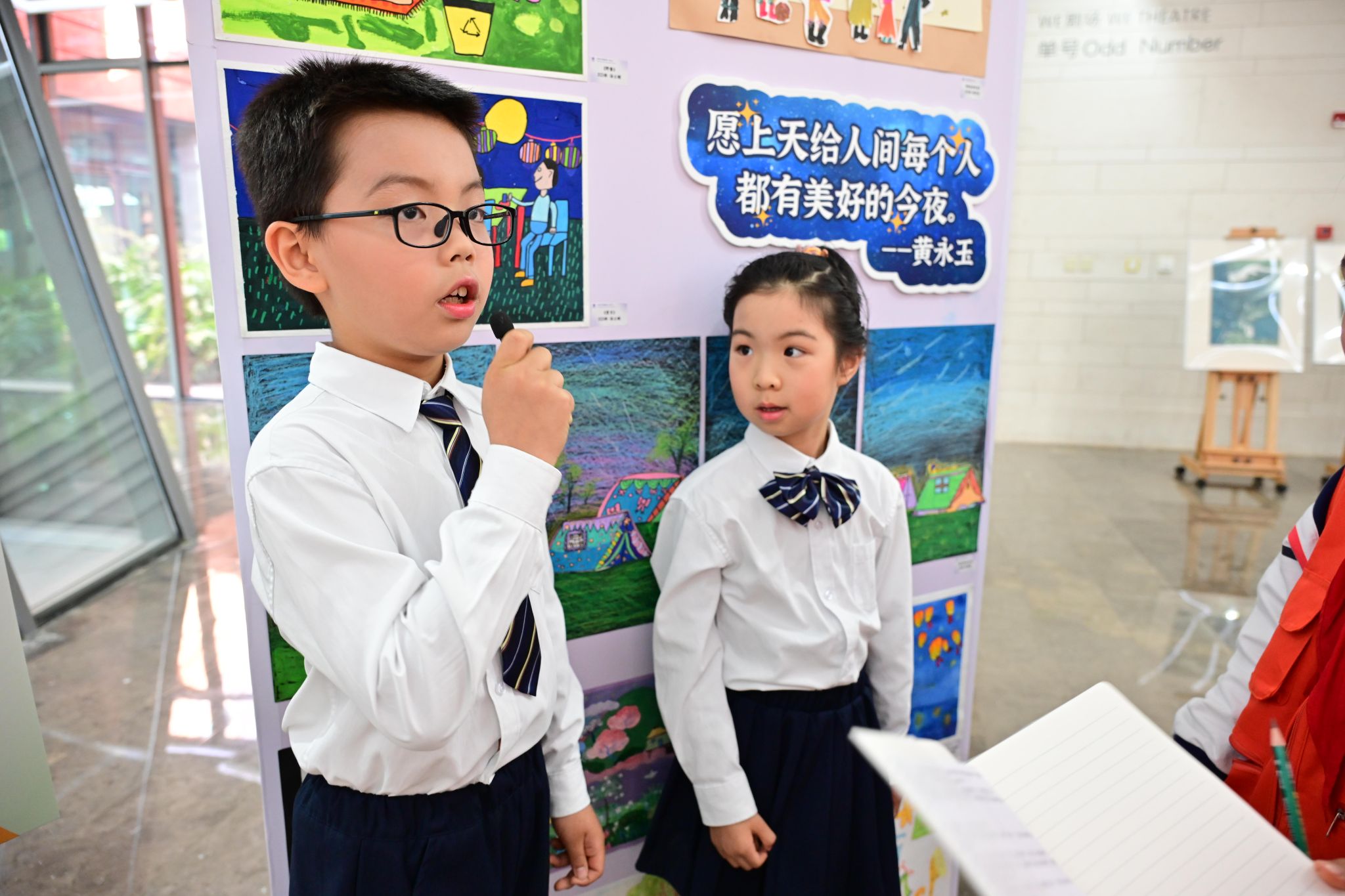
Two Generations of Artistic Souls Collide
Perspectives from educators, creators, and parents intertwined into a melody of artistic legacy and growth.
▲ Educators’ Insights
How does this collaboration with Huang Yongyu’s exhibition reflect SHSID’s “aesthetic education” ethos?
“This partnership is a key practice in Hongkou Campus’s art curriculum. Aesthetic education is vital for nurturing future global citizens. Beyond technique, it nourishes the soul. This collaboration with Huang Yongyu’s exhibition is a vivid embodiment of our commitment to holistic education. Immersed in Huang’s works, children not only learn craftsmanship but also absorb his childlike worldview—precious nourishment for holistic education.”
—Ms. Zhu Dan, Director of SHSID Hongkou Campus
The students’ works in this exhibition integrate the essence of Huang Yongyu’s art. How does the school’s art curriculum cultivate core artistic competencies through its “Master Class” module?
At the level of aesthetic perception, students are guided to appreciate Huang’s artworks. By analyzing his bold, vivid use of color, they develop a sharper sensitivity to visual impact. Through his distinctive forms, they gain a deeper understanding of artistic techniques such as exaggeration and deformation, enhancing their grasp of visual aesthetics.
In terms of artistic expression, students are encouraged to emulate Huang’s creative techniques—for example, his animated brushstrokes and anthropomorphic depictions of animals. They experiment with conveying emotions and personalities through lines and shapes, exploring multiple forms of expression to realize their creative ideas.
Inspired by the “Master Class” approach, students break free from convention and unleash their imagination. Themes such as “Animal Kingdom,” “Fantasy Adventure,” and “Beautiful Life” serve as springboards for creative expression, allowing students to bridge appreciation with creation and develop comprehensive artistic literacy.
—Mr. Luo Lingjun, Head of SHSID Art Education

▲ Young Creators’ Voices
Your animals, who are skateboarding, bathing, and gazing into mirrors, are delightful. How did you conceive these ideas?
“I find inspiration in life—like kids skateboarding—and imagine animals doing the same. I also think about the habits of animals, like how some love being clean and might take a bath. Then I combine those fun ideas together to create my artwork!”
—Max (Class 1-1 representative)
How did you integrate Huang Yongyu’s animals into your Fantasy Forest?
“The animals in Huang Yongyu’s paintings are full of life. I drew many lively animals too, and then added magical trees and mushrooms to bring in a fantasy element.”
—Clemence (Class 2-2 representative)
▲ Parent Perspectives
As a parent, what do you believe is the value of activities that engage children with the work of master artists? What changes or takeaways impressed you the most during your involvement?
As a parent of a first grader, I believe this has been one of the most vivid and meaningful aesthetic education experiences my child has ever had. Participating in both the exhibition and poetry recital has nurtured not only her appreciation of beauty but also her confidence—from her realizing, “My painting is being seen,” to celebrating, “My voice is being heard”—art has become her bridge to connect with the world. What surprised me most is that she now uses drawing to record her daily life. Art is no longer just a subject; it has become another language she uses to understand and express her world.
—Olivia’s mother (Class 1-2 parent representative)
This kind of dialogue between children and artistic masters is, in my view, a journey of passion, aesthetics, and legacy. Experiencing the master’s spirit of craftsmanship and cultural depth up close gives children a discerning eye—allowing them to find beauty in observation, feel beauty through reflection, and create beauty through innovation.
What moved me most while accompanying Annie was her transformation from “having something to say in her heart” to “expressing it through her hands.” She began using drawing to record the little stories behind her creative process—childlike, tender, and deeply expressive. This artistic journey awakened her confidence and independent thinking, and it also gave me a new window into her inner world. In the process of preparing together, our parent-child relationship grew more intimate and harmonious, building a shared spiritual connection—full of joy and meaning.
—Annie’s father (Class 1-2 parent representative)
Aesthetic Experiments from Gallery to Classroom
The unrestrained creativity and whimsical humor in Huang Yongyu’s art deeply resonate with the imaginative, innocent worlds of Grade 1 and 2 students at Hongkou Campus. In our art classes, we encourage students to think freely, imagine boldly, and draw inspiration from everyday life—just as Huang did. Through artistic expression, they learn to convey positive emotions.
Huang’s integration of diverse artistic forms also inspired the curriculum’s expansion into media such as origami, papercutting, collage, clay, printmaking, and Chinese painting. These formats broaden students’ artistic horizons and unlock their creative potential at an early age.
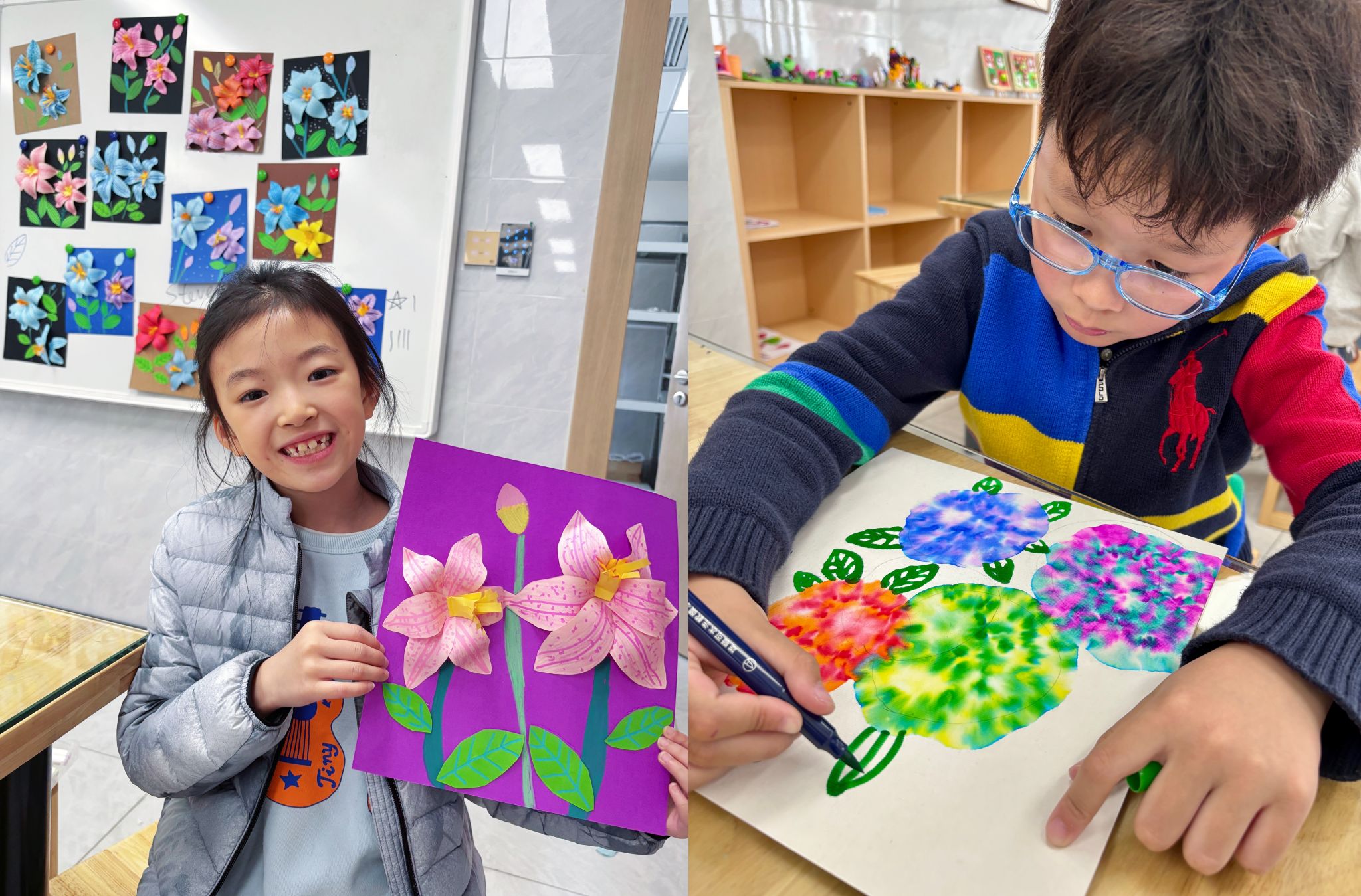
When discussing future directions for the “Children’s Art Empowerment Program,” the Head of Public Education at the World Expo Museum said, “Our collaboration is built on a shared commitment to aesthetic education and cultural heritage. We hope to transform exhibitions into dynamic classrooms, where students can broaden their perspectives and deepen their understanding of diverse cultures.”
She also shared plans to further cooperation through a two-way model of “bringing in and going out”: inviting museum experts to conduct lectures on campus, bringing cultural stories into the classroom, while also welcoming teachers and students into the museum for hands-on, immersive experiences that connect them with history and heritage. Together, these initiatives will propel the innovative development of aesthetic education.
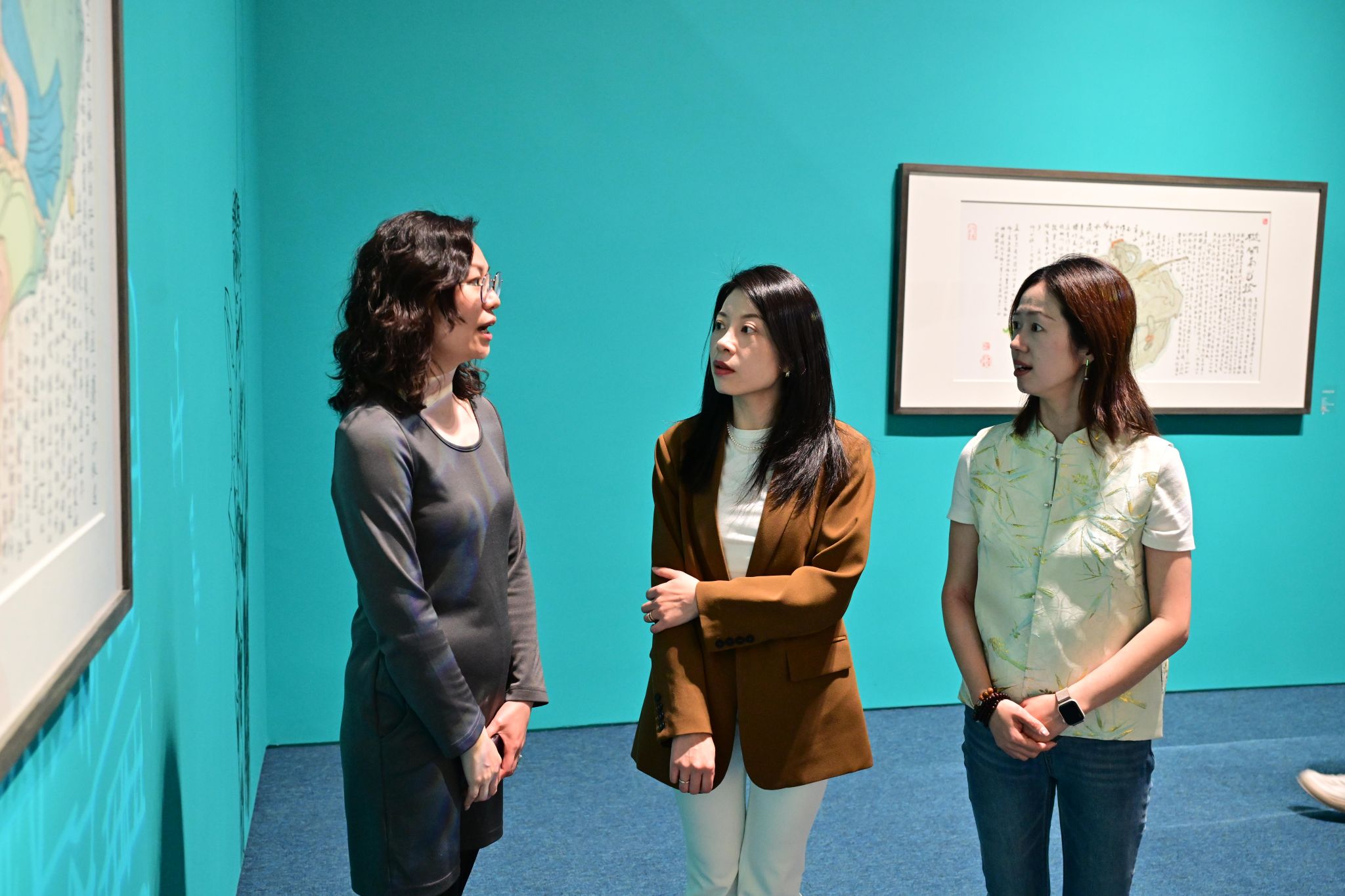
Artistic Seeds in Springtime
Through themes like “Animal Kingdom” and “Beautiful Life,” the children channeled Huang’s whimsy, imagination, and love for life into their art. While paying tribute to a master, they also made breakthroughs in their own creative journeys. These works have planted seeds of beauty in young hearts. As Huang wrote in Spring, “Life should be spent on beautiful things.” May these students retain their artistic purity, discovering and creating beauty wherever they go.
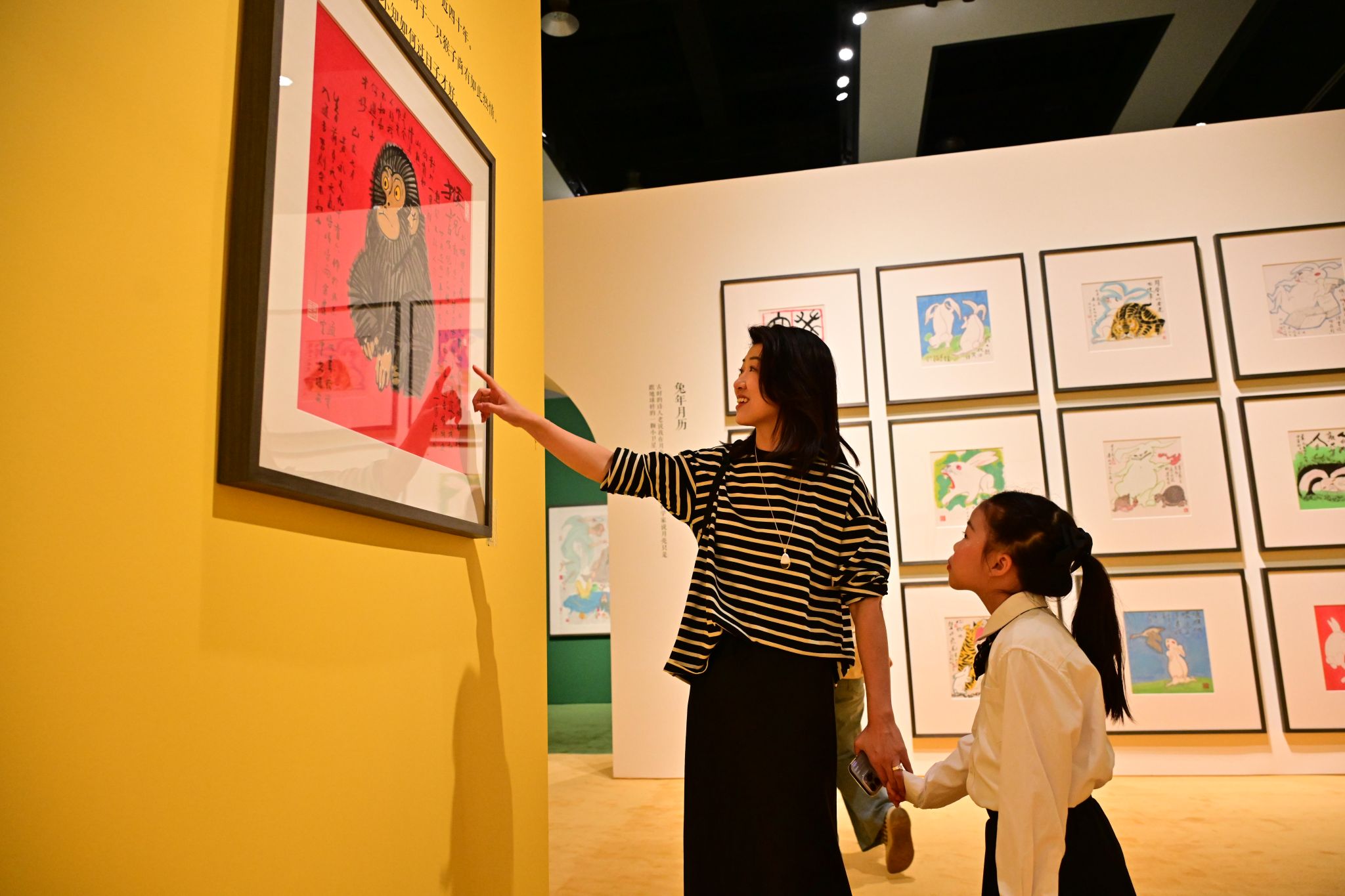
The exhibition runs until June 8. Step into this artistic sanctuary, and let the blossoms of art flourish within you.
Written by Nina Kang, Sonia Wu
Proofread by Chad Higgenbottom
Pictures by Elaine Zhu, World Expo Muesum
Edited by Cong Luo
Reviewed by Zhu Dan, Shen Chenli, Cong Luo